
Empididae is a family of flies with over 3,000 described species occurring worldwide in all the biogeographic realms but the majority are found in the Holarctic. They are mainly predatory flies like most of their relatives in the Empidoidea, and exhibit a wide range of forms but are generally small to medium-sized, non-metallic and rather bristly.

James Edward Collin was an English entomologist who specialised in Diptera.

Rhamphomyia sulcata is a species of dance flies, in the fly family Empididae. It is included in the subgenus Rhamphomyia. It is found in most of Europe, except the Balkan Peninsula.

Rhamphomyia lamellata is a species of dance flies, in the fly family Empididae. It is included in the subgenus Holoclera of the genus Rhamphomyia. It is found in Great Britain and Ireland, Germany, Switzerland, the Czech Republic, Slovakia and Hungary.
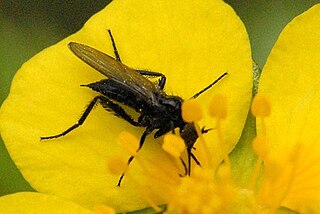
Empis planetica is a species of dagger flies, in the fly family Empididae. It is included in the subgenus Empis. It is found in Ireland and Great Britain and from Scandinavia south to Italy.

Clinocerinae is a subfamily of flies belonging to the family Empididae.

Empidinae, also called dance flies, are a subfamily of empidoid flies. They are mainly predatory flies like most of their relatives, and generally small to medium-sized. Most species are flower visitors and they can be effective pollinators.
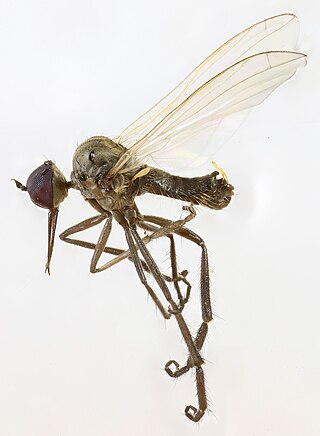
Empis albinervis is a species of fly in the family Empididae. It is included in the subgenus Coptophlebia of the genus Empis. It is found in the Palearctic.
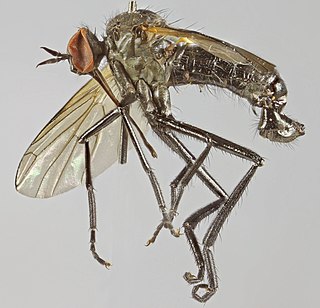
Empis lucida is a species of fly in the family Empididae. It is included in the subgenus Anacrostichus. It is found in the Palearctic. It is a large (8–10 mm.) shining black species.

Empis verralli is a species of fly in the family Empididae. It is included in the subgenus Anacrostichus. It is found in the Palearctic.
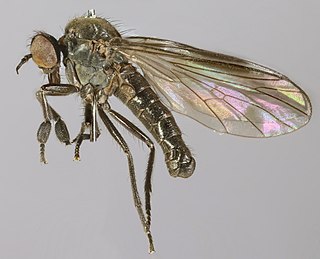
Hilara brevistyla is a species of fly in the family Empididae. It is found in the Palearctic.

Rhamphomyia albohirta is a species of fly in the family Empididae. It is included in the subgenus Aclonempis. It is found in the Palearctic.
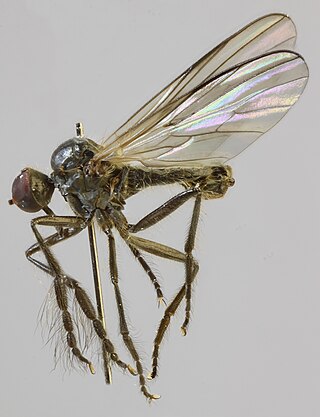
Rhamphomyia hirsutipes is a species of fly in the family Empididae. It is include in the subgenus Amydroneura of the genus Rhamphomyia. It is found in the Palearctic.
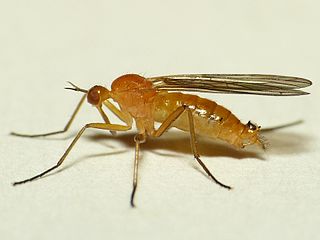
Empis lutea is a species of fly in the family Empididae. It is included in the subgenus Xanthempis. It is found in the Palearctic.
Rhamphomyia micropyga is a species of dance flies, in the fly family Empididae. It is included in the subgenus Pararhamphomyia.
Rhamphomyia murina is a species of dance flies, in the fly family Empididae. It is included in the subgenus Pararhamphomyia.
Rhamphomyia subcinarescens is a species of dance flies, in the fly family Empididae. It is included in the subgenus Rhamphomyia.
Rhamphomyia sulcatella is a species of dance flies, in the fly family Empididae. It is included in the subgenus Rhamphomyia.
Rhamphomyia sulcatina is a species of dance flies, in the fly family Empididae. It is included in the subgenus Rhamphomyia.
Rhamphomyia caliginosa is a species of dance flies, in the fly family Empididae. It is included in the subgenus Holoclera of the genus Rhamphomyia.












